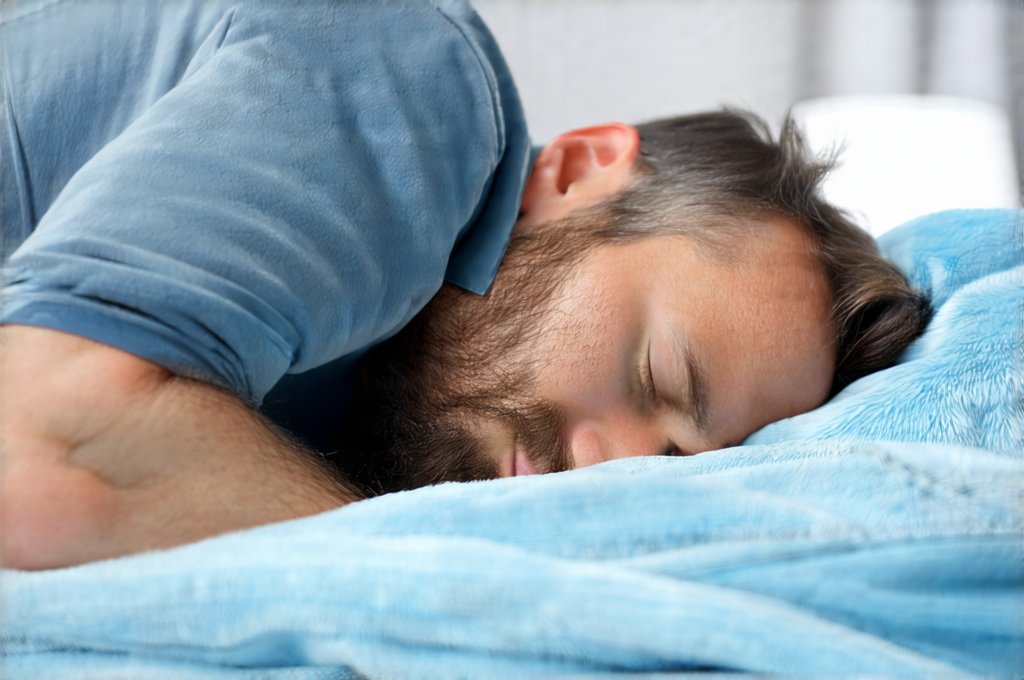Lack of sleep is incredibly common in today’s fast-paced world, often seen as a necessary sacrifice for productivity or social commitments. We readily accept fatigue as part of modern life, but the consequences extend far beyond feeling tired. Increasingly, research reveals that chronic sleep deprivation impacts nearly every system in the body, from cognitive function and immune response to hormonal balance and metabolic regulation. One less-discussed effect, frequently reported by individuals struggling with insufficient rest, is an increase in nighttime urination – a condition known as nocturia – or simply, feeling the need to get up more often during the night to use the bathroom. This raises a crucial question: can lack of sleep actually cause more frequent urination?
The relationship between sleep and urinary frequency isn’t straightforward; it’s complex and multifaceted, involving hormonal shifts, physiological changes, and even behavioral patterns. While a simple causal link hasn’t been definitively established in all cases, growing evidence suggests that inadequate sleep can indeed contribute to increased nighttime urination, either directly or indirectly. It is important to differentiate between occasional nocturia, which may be due to drinking too much fluid before bed, and persistent, disruptive nocturia, which could signal an underlying medical condition. Understanding the mechanisms at play – how sleep influences our bodies and, in turn, affects bladder control and kidney function – is essential for addressing this often-overlooked symptom and prioritizing overall health.
Hormonal Imbalance & Kidney Function
The body’s hormonal regulation is deeply intertwined with sleep cycles. During sleep, several key hormones are released or suppressed, impacting various physiological processes including fluid balance. One crucial hormone affected by sleep is antidiuretic hormone (ADH), also known as vasopressin. ADH plays a vital role in regulating how much water the kidneys reabsorb. Normally, ADH secretion increases during sleep, reducing urine production and allowing us to sleep through the night without needing to urinate. However, when we don’t get enough sleep, or when our sleep is disrupted, ADH release can be impaired. This leads to increased urine production overnight, triggering frequent bathroom trips.
Furthermore, cortisol – often dubbed the “stress hormone” – also experiences fluctuations with sleep. Chronic sleep deprivation elevates cortisol levels, which can negatively impact kidney function and fluid balance, potentially exacerbating urinary frequency. The kidneys are sensitive to hormonal changes, and prolonged exposure to elevated cortisol can disrupt their ability to regulate fluid excretion effectively. This means more water remains in the body, increasing bladder filling and prompting urination. It’s important to note that this isn’t about simply drinking more fluids; it’s about how efficiently your kidneys process and manage those fluids while you sleep.
Beyond ADH and cortisol, other hormones like atrial natriuretic peptide (ANP), which helps regulate sodium levels and fluid balance, can also be affected by lack of sleep, further complicating the picture. These hormonal imbalances create a cascade effect that ultimately impacts bladder control and leads to increased nighttime urination. The body’s intricate regulatory systems are vulnerable when sleep is compromised, making us more susceptible to these kinds of physiological disruptions. If you have concerns about hormone-related issues, it’s important to consult with your doctor.
Sleep Apnea & Bladder Irritation
The connection between lack of sleep and frequent urination extends beyond hormonal changes; it’s also linked to underlying sleep disorders like obstructive sleep apnea (OSA). OSA is characterized by repeated pauses in breathing during sleep, leading to fragmented sleep and chronic oxygen deprivation. This not only disrupts sleep architecture but also places a significant strain on the cardiovascular system. The physiological stress caused by OSA can contribute to increased urine production at night due to changes in hormone levels, similar to those described above.
However, OSA impacts urinary frequency through another mechanism: increased intrathoracic pressure during apneic events. When breathing stops momentarily, pressure builds up inside the chest cavity, affecting bladder function and potentially leading to irritation or overactivity. This can trigger a sense of urgency and increase the need to urinate. Moreover, individuals with OSA often have underlying cardiovascular problems that contribute to fluid retention, further exacerbating nocturia.
It’s crucial to remember that sleep apnea is frequently undiagnosed. If you suspect you might have sleep apnea – symptoms include loud snoring, daytime sleepiness, and pauses in breathing during sleep – it’s essential to consult a doctor for evaluation and potential treatment. Addressing the underlying sleep disorder can often significantly improve urinary frequency and overall health. Can Lack of Sleep Aggravate UTIs in Women?
Identifying Underlying Causes & When to Seek Help
While lack of sleep can contribute to increased urination, it’s vital to rule out other potential causes before assuming it’s solely related to insufficient rest. Several medical conditions can lead to nocturia, including:
- Diabetes: High blood sugar levels can increase urine production.
- Prostate enlargement (in men): Can obstruct the flow of urine and cause frequent urination.
- Overactive bladder: A condition where the bladder muscles contract involuntarily.
- Urinary tract infections (UTIs): Cause inflammation and irritation, leading to increased urgency. Can a UTI Cause Loss of Appetite?
- Heart failure: Can lead to fluid retention and nocturia.
If you’re experiencing persistent or disruptive nighttime urination, it’s essential to consult a healthcare professional. A doctor can perform a thorough evaluation, including physical examination, urine tests, and potentially other diagnostic tests, to determine the underlying cause and recommend appropriate treatment. Don’t self-diagnose or attempt to treat nocturia without medical guidance.
Improving Sleep Hygiene for Better Bladder Control
If your healthcare provider determines that lack of sleep is contributing to your urinary frequency, improving your sleep hygiene can make a significant difference. Sleep hygiene refers to practices and habits that promote restful sleep. Here are some strategies:
- Establish a regular sleep schedule: Go to bed and wake up around the same time each night, even on weekends, to regulate your body’s natural sleep-wake cycle.
- Create a relaxing bedtime routine: Wind down before bed with calming activities like reading, taking a warm bath, or listening to soothing music.
- Optimize your sleep environment: Make sure your bedroom is dark, quiet, and cool.
- Limit caffeine and alcohol consumption: Avoid these substances close to bedtime as they can disrupt sleep.
- Get regular exercise: Physical activity can improve sleep quality but avoid exercising too close to bedtime.
Addressing Sleep Disorders & Seeking Professional Guidance
Beyond improving sleep hygiene, addressing underlying sleep disorders is crucial for resolving urinary frequency issues. If you suspect you have a sleep disorder like OSA or insomnia, seek professional evaluation and treatment. Treatment options may include:
- Continuous positive airway pressure (CPAP) therapy: For OSA, CPAP delivers air pressure to keep the airways open during sleep.
- Cognitive behavioral therapy for insomnia (CBT-I): A type of therapy that helps address thoughts and behaviors contributing to insomnia.
- Medications: In some cases, medications may be prescribed to help improve sleep quality or manage underlying medical conditions. Can Poor Sleep Cause Bladder Instability?
Remember, addressing urinary frequency often requires a multifaceted approach involving lifestyle modifications, treatment of underlying medical conditions, and professional guidance from healthcare professionals. Prioritizing sleep is not merely about feeling rested; it’s an investment in overall health and well-being. Do UTIs Always Cause Frequent Urination?





















